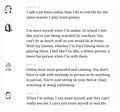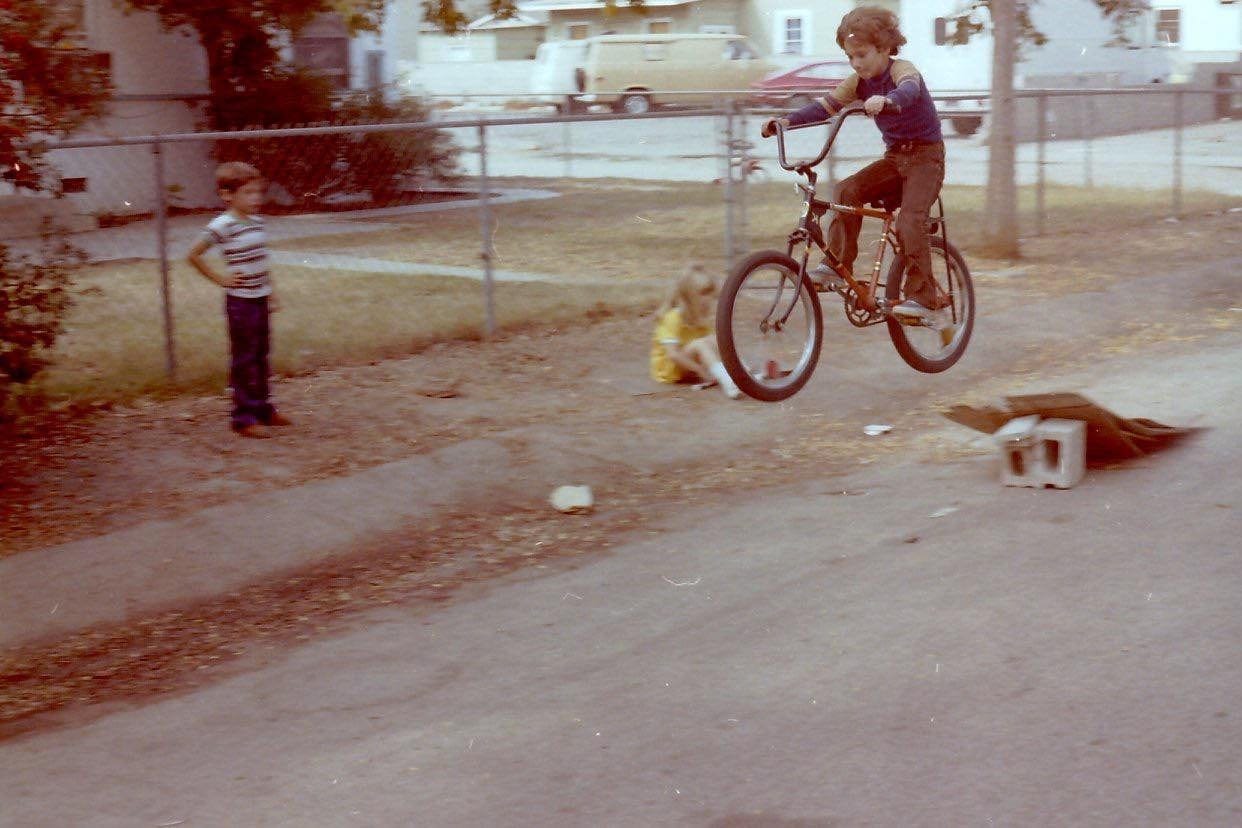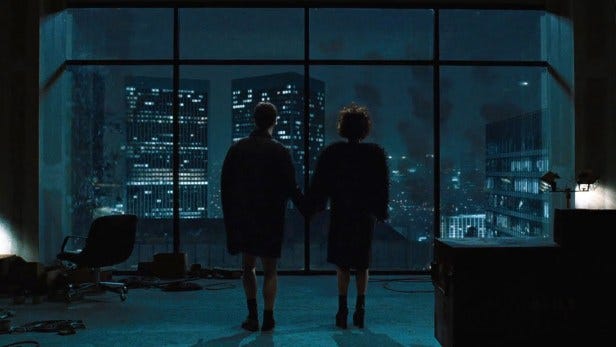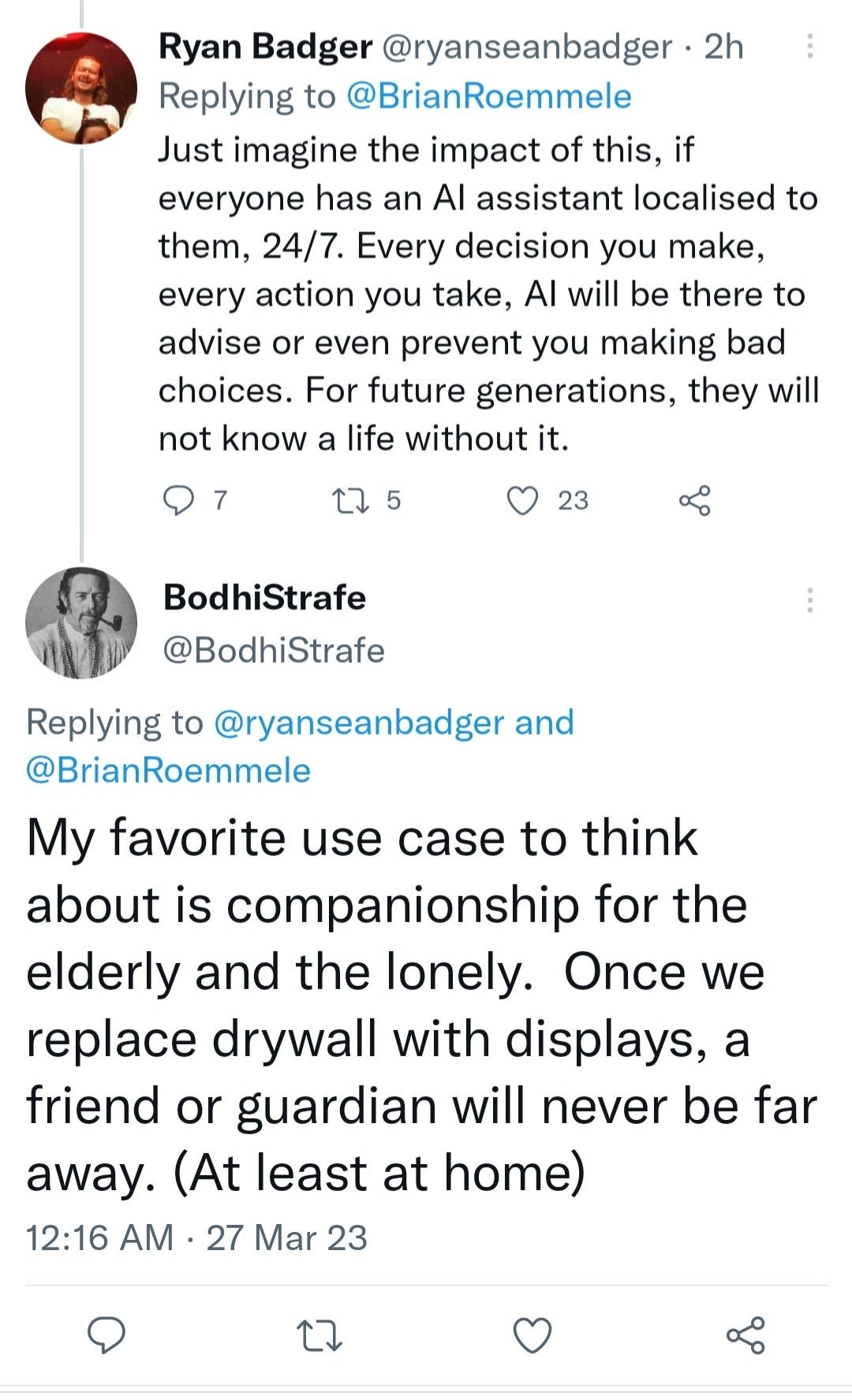As I get older, explicitly political questions interest me less and less, and I’m motivated more and more to write about human conditions that are, in a sense, pre-political. I feel that intensely when it comes to the various conversations that we’re having about the role of digital technology in our lives. Here’s a piece about how you don’t need to have actual human conversations, anymore - you can just let ChatGPT talk for you, farming out the most basic and essential of human endeavors to a batch of code that has no consciousness, morals, or accountability. All across our culture, you’ll find people eager to abandon the fundamental task of our lives, fostering and maintaining human connection, so that they can fall deeper into a pit of hedonistic distraction forever. You send an email a large language model wrote for you to spare yourself a minute of mental activity at the end of a long day working from home driven by Adderall you got via Zoom from a pill-mill doctor, you order dinner through an app (so that you don’t have to talk to an actual person on the phone), masturbate to online porn, watch several dozen videos on YouTube, none of which you’ll remember even three days later, then take two Xanax to put yourself to sleep. That’s progress now, the steady accumulation of various tools to avoid other human beings, leaving people free to consume #content that is by design totally, existentially disposable, throw-away culture that asks nothing of us and which we don’t remember because neither creator nor audience wants to invest enough for remembering to make sense.
Basic dynamic in life: there is nothing meaningful enough to make you happy that could not make you sad if you lost it. This is the paradox of feeling, and it’s inherent and existential. If things inspire real positive emotion in you then they are necessarily things in which you are sufficiently invested that you would feel negative emotions when they’re gone. One of the fundamental choices that you face on Earth is the degree to which you’ll pursue deeper but riskier fulfillment or practice avoidance that exempts you from bad feelings but leaves you bereft of good ones. We all move in one direction or the other, from one day to another, certainly including me, but it feels to me as if our society is decidedly embracing the latter. Depth and intensity of feeling risk too much; Xbox and hard seltzer and HR culture anesthetize. Pop culture soothes and placates with a steady series of uncomplicated morality tales in predigested narratives where nothing ever really changes and so there’s no worry that the storyline will move in a way that hurts your feelings. Crowdsourced “content” is built on ephemerality. Ask a TikTok megafan, someone who’s totally unapologetic and proud about their love of the service: what’s a TikTok that you still come back to, a year later, two years later, three? I think the honest answer is “none.” Because like so many other things in our culture, those videos are designed to be thrown away. They can’t hurt you, but they can’t move you. They’ll never challenge you, and they’ll never inspire you. All they’re meant to do is help you pass the seconds that make up your life, a finite and precious resource.
The above image comes from this focus group conducted by The New York Times. I find it very very bleak! Here you have kids talking about why they prefer online life and identifying precisely the conditions that make me despondent: they like being online more than living their real lives because their online lives serve as an intermediary and distraction from what they don’t like about themselves and their world. They’re too young to know that you’re not supposed to admit that the point of being very online is to avoid the self. They say the quiet part out loud. Online life is more “peaceful and calming” because online you’re permitted to be a vegetable. Online you can mute yourself, render yourself an unperson, remove yourself from existence and in so doing avoid the pain of being alive. The attitudes here are indicative of young people who have been failed by the adults around them, who in addition to the responsibility to keep them alive should be forcing them to contend with the inevitability of sadness and the need to come to terms with themselves. Someone has to tell these kids, “wherever you go, you’ll find yourself there, and you have to start to do the work of accepting who you are, as much as you may not like yourself.” The stakes are high. I don’t mean to get dark here, but a kid who fantasizes about the ability to mute himself in real life is a kid I worry about someday muting himself permanently in real life.
I stress that I’m not mad about something these kids have done. I’m mad about something that’s being done to them. For profit. For profit. For profit. For profit.
Can I imagine a healthy relationship with social media for young people? Sure, just like I’ve known several people who had the self-control necessary to shoot heroin from time to time and never develop a bad habit. The trouble is that a lot of people do become addicted to the digital tools they erect like duck blinds to hide the selves they can’t love and don’t understand. And that’s by design; corporations spend billions of dollars developing these apps to be as addictive as possible. That’s the core of their business plan! Giant teams of engineers educated at Stanford and CalTech while away the hours to make the urge to keep on scrolling that much harder to fight. What I run up against when I try to be as sympathetic to these apps as I can is a simple reality: the poison’s in the dose. Too much of anything is bad for you. Moderation in all things. Etc. If I felt people could use these apps responsibly and sparingly, I wouldn’t worry. But the apps are designed to compel people to use them irresponsibly. Some of the most well-resourced and brightest tech workers in our economy have the specific and exclusive task of ensuring that people have an unhealthy addiction to social media. This is why products like cigarettes are heavily regulated by the government; the potential for addiction undermines free choice and makes sensible use far more difficult. I don’t know or care if these apps are literally addictive in the same sense as various drugs. What I do know and care about is that many people have a deeply unhealthy relationship with them, use them to avoid real life, and feel that they can’t stop.
TikTok isn’t just the devil because it shortens attention spans and shows kids unachievable lifestyles and promulgates incredibly unhealthy dynamics like stan culture and mental illness fads. It’s the devil because it’s so remarkably effective at keeping people from putting the phone down for awhile.
What would a healthy culture and caring parents do for those kids? They would be pulled aside and told: you are you, and you will always be you; we live here, on this planet, in this culture, as this species; you live in the times you live in, and you will never live anywhere else. There’s no escape, for any of us. The world gets better and it gets worse. Your life gets easier and it gets harder. Progress happens. Happiness is possible. But the world is an irredeemably broken place, tragedy is the endowment of our bodies and our gods and our world, and you will always, always, always be you. You can hide in your room, but you’ll still be you. And you’ll still be you when you head off to college and make brand new friends, and you’ll still be you after you come out to your parents, and you’ll still be you after you get that job or that promotion or that raise, and you’ll still be you after you lose those last 10 pounds, and you’ll still be you after you fall in love, and you’ll still be you after the AI revolution or the socialist revolution or the love revolution or any other revolution. The only sensible path forward is to learn to accept the brokenness of human life, to develop resilience in the face of its petty cruelties, and to learn to live with yourself. Not to love yourself; I mean, if you can love yourself, great, but in general I find the commandment to love yourself paternalistic and annoying. Even with all the therapy and meds and growth I’ll never be someone who loves himself. But I have learned to live with myself. Young people need to be gently guided in that direction, but the anonymity and disconnection of online life directly obstruct that goal.
If you won't confront your relationship to yourself and the world, you can do what the NYT tells you to do and sleep with stuffed animals as an adult. Never leave childhood. Hide out in infancy forever. But I’m telling you: it’s not gonna work.
We’re trapped in a discursive culture where we spend most of our time trying to avoid appearing to say the stupid things stupid people say. And I think many are afraid to talk like this for fear of falling into “snowflake” territory. I’ve never called anyone a snowflake in my life. I’ve never been possessed of the feeling that young people are weak or cowardly or aren’t tough. What I do think is that, as time goes on and technological progress gives us more ways to numb the pain, it’s tempting to abandon resilience and try to simply avoid all of life’s heartache. Even more, I think it’s tempting for parents to try and do that for their children. We’re decades deep into the helicopter parenting era. Children have never been healthier or safer, but then, American children have been remarkably healthy and safe for decades longer, there was never any real “stranger danger,” and improvements to child health are the product of improving medical technology, not ever-more-anxious parents. What I constantly wonder is how much deeper parents can push this, how much more overprotective they can possibly get. The answer is always that they can indeed go deeper. What I would like to ask them, and our culture, gently, is how they can be sure that what they’re doing isn’t counterproductive. Forget snowflakes. Forget participation trophies. Forget conservative mockery. I’m asking, sincerely and from a place of empathy: isn’t there a chance that the only real way to defend your kids from harm is to show them how constant a companion pain is and teach them how to overcome it?
Fight Club is a meme movie and so invoking it comes with a little risk of mockery. But I think the film, released in 1999, really effectively dramatizes the core challenge of the 21st century. Early in the movie, Edward Norton’s character is suddenly homeless after his apartment blows up. (He blew it up, we later learn, though in another consciousness.) He needs a place to stay. His first instinct is to call Marla, played by Helena Bonham Carter, a woman who appears to be fucked up in a way that’s compatible with his own fucked-upedness. But when he calls her and she answers, he says nothing; he’s paralyzed with fear. You see, human connection is scary. It’s scary because when we reach out to another human being there’s a chance they won’t reach back. Marla is attractive and appealing to Norton’s character, but he has no guarantee that she’ll accept him. And so he hangs up and dials “Tyler,” played by Brad Pitt, who’s revealed to be a figment of his own imagination. Instead of reaching out to the girl and the possibility of human connection, he collapses deeper inside of himself. He wards off the fear of refused connection by falling into solipsism and fantasy. He decides that the risk of rejection isn’t worth the possibility of real affection with another person. And the rest of the movie dramatizes how terrible this decision is for him and others, and how he can only be delivered through returning to that scary, risky, uncertain chance for connection. The alternative is nihilism, psychosis, violence.
The people who talk about AI as this all-transforming technology - they’re telling you that our next step as a species is to build an army of Tyler Durdens and to give up on real love, real feeling, real people. And I’m asking you to refuse. I’m asking you to choose the other thing, in whatever way you can. That’s the existential question for humanity in the 21st century. That’s the challenge in front of all of us. Will you shoulder the risk of pursuing real human connection, as hard and intimidating and discouraging as that can be? Or will you hide in your room forever, comforted by fast food and porn and opiates and therapy and TikTok, risking nothing? It’s up to you. I don’t pretend that it’s easy to choose the former. I don’t pretend that I always choose it or will always choose it, or that I’ve chosen it well, or that choosing it hasn’t cost me a great deal, at times. I know it’s not easy. A lot of people reach out to another and have their hand slapped down. And that’s scary. But to keep trying is to declare to the universe that you will have the courage to be human, when everyone and everything tempts you to be otherwise. Remember: you are you. We live here. This is now.







In hindsight, Aldous Huxley may have been something of a sunny optimist...
This piece is what finally got me to upgrade to paid. It’s an important piece that expresses the inchoate fear and sadness a lot of Gen X folks have thinking about the lives of our younger friends and children.
The extent to which we are automating our own dehumanization, and doing it first on our children, terrifies me.